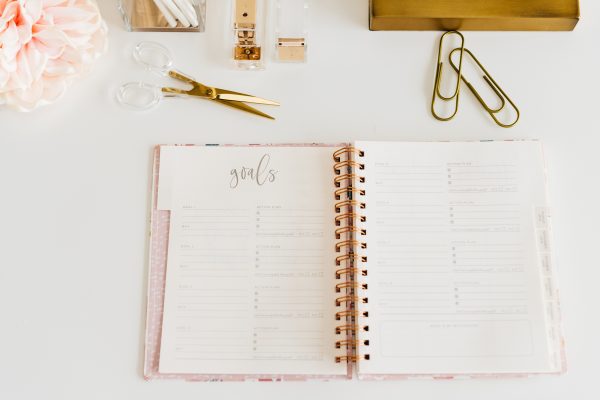Goal setting is a very important technique for enhancing performance. Every successful business person, artist, athlete, or leader has set goals that have driven and directed their efforts in order to achieve their ambitions. Why is goal setting so powerful? Research demonstrates goal setting directs your focus and prevents you from paying attention to distractions. Goal setting can maintain and enhance your motivation. Goal setting gives you direction. As you work towards your goal and see short-term success, this fuels you to keep going and increases your confidence. However, not everyone has the desire to win the Nationals, breed the next superstar, climb Mount Everest, or expand their business. Many wish to be content, secure, safe, and stable. And it is important to remember safety, security, contentment, happiness, enjoyment, and having a stable life are life goals. Goals do not need to be big or audacious.
“The problem is not that goals do not work for me, but rather how and what action I take to achieve my goals. The goal is not usually the issue, but the lack of planning or action needed to achieve the goal.”
So where do we start? Questions to ask yourself include ‘what would you like to achieve in life or your sport or your business or relationship?’ and ‘how important is it to you?’ It is pointless punishing yourself unnecessarily. If the goal is not really important to you, there is no point spending time and energy on a plan that is doomed to fail before it even commences. You need to be realistic and have a sober look at what is important in your life and where your priorities lie. It is certainly not an admission of defeat if you can honestly say I would rather spend time and effort on something else that matters to me more, and this is fine.

Once you decide you have the commitment to improve an area, you need to establish where you are in terms of relevant skills, knowledge, and attributes/achievements. Next you need to identify where you need to be. Finally, you need to find a way of travelling from here to there. Your goal-setting master plan needs to include a list of the skills you need to develop, the knowledge you need to learn, or the resources you need to acquire along a realistic timescale for each of these including where you are currently and where you want to be by a given date.
“When it is obvious your goal cannot be reached, do not adjust the goal, adjust your actions and your steps towards your goal.”
The most common setting system for goals is SMART – which suggests goals must be specific, measureable, attainable, realistic, and time bound. The goal must target a particular area of functioning and focus on building it. Do not set a vague goal, for example, I want to improve. The outcome must be measured quantitatively or qualitatively, therefore allowing for monitoring progress after executing a plan. The goal must be practical and can be implemented. There should be flexibility and a time frame for the task completion. The goal must be within your personal control rather than depending on the performance of others.

There are other systems to also consider such as BHAG and INSPIRED. These include adding other aspects, for example, the action plan and goal must follow professional and personal ethics as well as including positive rewards and will include a feeling of accomplishment upon completion. Research certainly indicates the key to achieving goals is down to the planning. You have to look at each individual skill, piece of knowledge, and resources needed to achieve your goal and work out a separate plan for each element.
The following questions can help you with this:
- What area do I want to improve?
- What associated skills/attributes/qualities do I need to develop in order to achieve my goal?
- What routines/practices or events or books or equipment will help me build up the knowledge or skills?
- How can I measure my progress?
- What is my present level of attainment for each area I wish to improve and what level of performance do I wish to achieve by a specified date?
- Who can I help to monitor my progress?
- Where can I seek expert advice?
Having a vision of the consequences of achieving your goal will strengthen your intentions and help to sustain focus.

Goal setting is not just about identifying what you want to achieve but also how you will achieve it and how you will measure that achievement. Challenging goals must be broken down into realistic steps. Goals must be set according to age, stage of development, confidence, ability, and motivation of the individual. Goals must be challenging yet realistic.
“The problem is most people set a goal and their expectations are that the path towards the goal will be in a straight line. In fact, you need to think the opposite way. Always expect there to be challenges along the way.”
Some goal-setting tips
- More difficult goals tend to lead to higher performance resulting in more effort than easier goals.
- Specific goals are more effective than subjective goals – for example, do your best vs increase profit by 1% – or no goals.
- You have to accept and take responsibility for the goal, even if you did not assign it.
- Goals do not work if you do not have feedback on your progress.
- To keep your goals in your mind, write them down and pin this somewhere you will see them daily.
- Timetables should be modified to take into account changing circumstances such as health, finances, or even public health concerns and other commitments including your job or family.
- Remember setting goals is all about making you feel good about yourself when you hit targets. They are not designed to provide the opportunity for you to hurt yourself either physically or mentally when you fail to reach a target.
- If the plan is too difficult or overoptimistic you can adjust or make changes to your goals. Never be afraid to seek advice from others.
- While some qualities or skills are easy to measure such as reaction times, heart rate, or the number of calories/types of food consumed, others are more difficult. For example, sleep could be measured by the number of hours slept, or the time of going to bed and waking up. Some skills require imagination such as measuring emotions. You might ask others to rate you on certain skills. You can devise your own rating scale of 1-10.
- Set goals at a higher level than your current ability.
- Your goals must relate to you as an individual. Do not borrow other people’s goals. Decide what you want to achieve.
- Many begin their goals with enthusiasm. They talk about their goals and are keen to share their ambitions and intentions. Wanting a goal and telling everyone about it will not make it happen. The reality is you need to follow up your intent with clear action and ensure progress of your goal.
- A single end goal will most likely require many smaller supportive goals. These supportive goals will be broken down and joined up to support the main goal.
- Many complain they do not have the time, due to working hours and commitment, to achieve their goals. However, it could be argued that this is not a question about lack of time but related to priorities. You may need to consider planning your time better, communicating your changes to others, and building daily patterns or new routines to allow you to work on your goals.

 |
Dr Lynn Pal [BSc (Hons), PGDip Sport, PGC (BPS personality A & B), PGDip CBT, MBCT, PhD, PGCHE, C Psychol.] is a Neurobiological and Behavioural Chartered Psychologist with a background in Biomedical Sciences and Psychology. Specialist professional qualifications and training include cognitive behavioural therapy, mindfulness, sport psychology and psychoneurobiology. Experience includes 15 years in teaching undergraduate and postgraduate students, an academic career including national and international research publications, consultancy work in national audits and national/international sporting teams, research supervision and a portfolio of sport, health and clinical clients. Dr Lynn Pal provides free sport psychology tips and research updates on social media www.facebook.com/drlynnpal. If you are interested in working with Lynn please contact lynn.s.pal@gmail.com. |











